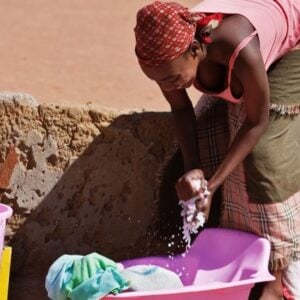Violence in Syria’s As-Sweida Governorate throughout July and into early August has had a devastating impact on children and families. At least 22 children were killed and 21 others injured, while five health centres were struck, two physicians lost their lives, and ambulances were obstructed or attacked. Vital infrastructure such as water, electricity, and fuel systems suffered significant damage, and insecurity continues to severely inhibit access to essential services. In the midst of this crisis, more than 190,000 people—primarily women and children—have been displaced from their homes.
In response to the growing humanitarian needs, UNICEF deployed fourteen mobile health and nutrition teams and provided critical life-saving supplies to over 4,000 children and women. The organization also delivered safe drinking water and fuel to water pumping stations, benefiting more than 30,000 people, and supported 1,500 children with psychological support, recreational materials, and explosive ordnance risk reduction activities. UNICEF joined the UN’s first inter-agency convoy to As-Sweida Governorate to carry out a rapid on-the-ground assessment and improve the speed and effectiveness of the response effort.
UNICEF Syria’s Deputy Representative, Zeinab Adam, described the situation as tragic and deeply alarming, welcoming increased efforts by interim authorities to help facilitate humanitarian access. She emphasized that unhindered access for both humanitarian actors and commercial goods is essential to deliver food, water, and other life-saving services, and to restore a minimum level of protection and stability in affected communities. UNICEF remains committed to staying on the ground and advocating for continued support until children and families across As-Sweida are safe, supported, and able to thrive.







